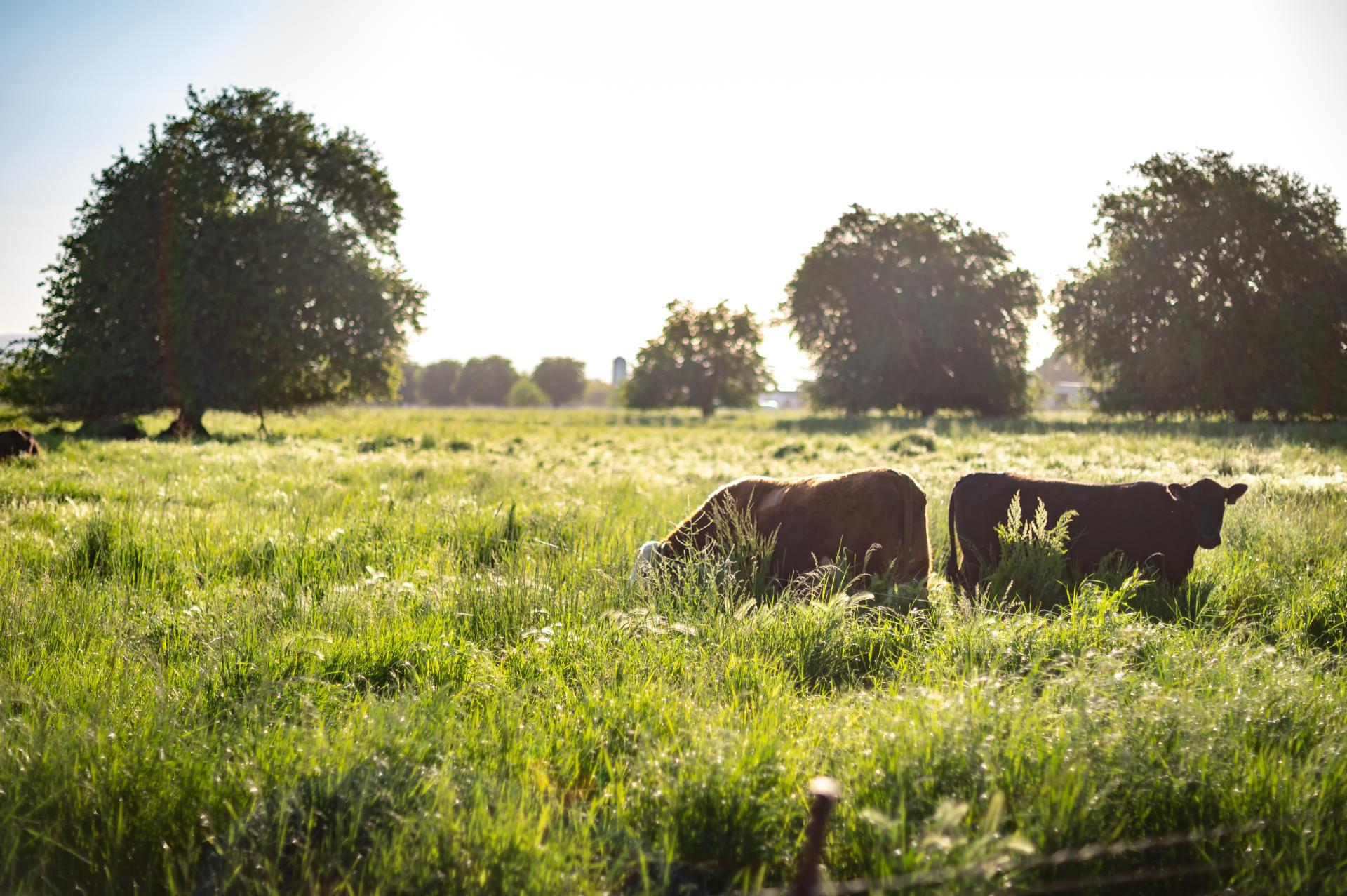CRARS Awarded Five-Year, $7 Million Grant to Help Counter Climate Change Challenges

Early morning at the Paul L. Byrne Memorial University Farm (FARM) on Wednesday, April 21, 2021 in Chico, Calif. (Jason Halley/University Photographer/CSU, Chico)
California State University Chico’s Center for Regenerative Agriculture and Resilient Systems (CRARS), in collaboration with 12 other conservation partners, has been awarded a coveted Regional Conservation Partnership Program grant totaling nearly $7 million for 2020–21 through the Natural Resources Conservation Service (NRCS), an arm of the United States Department of Agriculture.
“The Regional Conservation Partnership Program is public-private partnership working at its best,” said Terry Cosby, acting chief for the NRCS. “These new projects will harness the power of partnership to help bring about solutions to natural resource concerns across the country while supporting our efforts to combat the climate crisis.”
CRARS and its conservation partners were awarded $6,995,463 to support “Soil Health Management Systems for Northern California,” a five-year project designed to help orchard and vineyard, rangeland, dairy, and row crop producers in Northern California build food and fiber-production resiliency to counter the challenges from climate change. The grant will fund four California Resource Conservation District Hub positions to support the development of producer-based Soil Health Management Plans, implementation strategies and protocols in three distinct regions in Northern California.
CRARS Director and College of Agriculture faculty Cynthia Daley said the grant provides an opportunity for Northern California agricultural agencies to improve upon already existing techniques—while collaborating to do even more.
“This regional partnership is an opportunity for growers in the North State to participate in conservation practices in a low-risk environment, and in a way that makes sense on their individual operations,” she said.
The project integrates carbon farm planning activities and will report on economic and social outcomes in addition to conservation outcomes. It also supports Agriculture Communities of Practice to disseminate adaptive management knowledge, training and exchange of ideas. Working together, CRARS will build plans that conserve and regenerate soil, while sequestering carbon and building resilience through water-use efficiency and enhancing the resiliency of farms and ranches in the North State—aligning seamlessly with the Center’s mission and vision.
CRARS conservation partners include:
- California Association of Resource Conservation Districts (CARCD)
- The California Department of Food and Agriculture
- Carbon Cycle Institute
- Fibershed
- Glenn County Resource Conservation District
- Humboldt Resource Conservation District
- Lassen Resource Conservation District
- Lassen County Farm Bureau
- Mendocino County Farm Bureau
- Mendocino Resource Conservation District
- Modoc Resource Conservation District
- University of California Cooperative Extension
Conservation partners work in collaboration with NRCS to help farmers, ranchers and forest landowners throughout the nation implement systems that conserve water and soil resources, improve the health of wildlife habitats and increase climate resilience. These projects offer impactful and measurable outcomes, so the NRCS is investing $330 million in 85 locally driven, public-private partnerships to protect agricultural viability in the face of climate change—this Regional Conservation Partnership Program grant is one of these projects.
In the face of global climate change, CRARS seeks to promote regenerative farming practices to reduce greenhouse gasses, restore soil resiliency, increase the sustainability of farms and ranches, and address food and water insecurity. As a global research center, demonstration and training site, and policy think tank working to usher in a brighter future, it strives to develop, demonstrate, and disseminate techniques and practices that rebuild and enhance the resiliency of our living systems.


